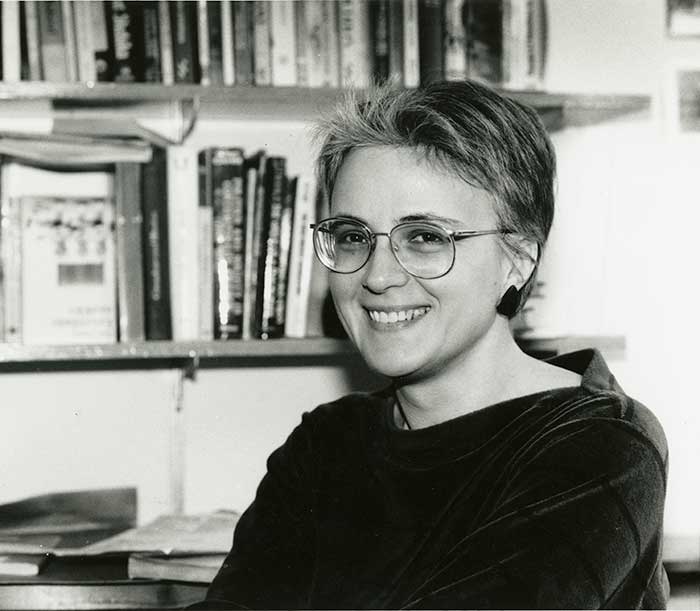Filed under:

In 1977, when Persis Charles arrived on campus for her first semester teaching women’s history, she found the culture of student-centered teaching, with its conference system as the cornerstone, to be very different from other schools with which she was familiar. “It took me a while to get used to the style of learning here,” Charles says.
After an impressive 42-year tenure at the College, Charles cites student engagement as one of the highlights of her career at Sarah Lawrence. “It’s most enjoyable to me when a class discussion goes really well or when a conference project really starts to bear fruit over the course of a year or semester,” she reflects. “Those are two very pleasant experiences.”
Charles also cites the freedom to pursue her wide range of academic interests as another benefit of teaching at the College. She came to One Mead Way as a women’s historian, teaching about rising ideas of domesticity and, in particular, how people began to reconceptualize the nature of the home as women became more important in society. While teaching women’s history brought her a great deal of satisfaction, she branched out and taught courses on topics such as meritocracy and privilege; the social and cultural aspects of food production and consumption; and the changes and continuities of leisure over time.
One course was particularly gratifying: 1919, a lecture class on the history of that year. World War I had just ended, and the Treaty of Versailles was drafted and being debated. “It was a year of incredible ferment,” Charles says, “not just in terms of war and diplomacy, but in various kinds of artistic and social movements, including gay rights, women’s rights, and African American rights.”
Charles invited fellow faculty members to give lectures on 1919, pertaining to their areas of expertise; her colleagues’ responses were enthusiastic. She gave half the lectures, while colleagues covered the remaining lectures. “It was a very satisfying experience,” she says. “I felt pretty happy. That was definitely a high point.”
When she looks back on her decades at the College, Charles is most grateful for two things: the comradeship of her esteemed colleagues and her independent-minded students. She says, “It has been very satisfying to see students pursue topics that may not have had much to do with the central ideas of the course and to watch as their ideas come to fruition—in helping to drive student projects, there’s a great sense of mutual accomplishment.”
Written by Suzanne Guillette MFA ’05